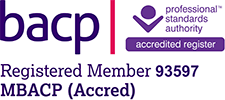ADHD (Attention Deficit Hyperactivity Disorder)
What is ADHD?
Symptoms of ADHD are characterised by behaviours, such as:

- difficulty concentrating
- impulsivity
- difficulty with organisation and time management
- sleep difficulties
- procrastination, especially with long term tasks
- difficulty managing stress and anxiety
- difficulty regulating emotions
- black and white thinking
What is the treatment for ADHD?
Treatment can include medication and counselling. Adults can be diagnosed through a referral from their GP or from an assessment from a private ADHD clinic.
Evidence suggests that people with ADHD or ADD lack dopamine, which is a neurotransmitter involved in the reward circuits in the brain. As a result of this lack of dopamine, individuals with ADHD have a tendency to seek out dopamine hits or rewards, through food, alcohol, gambling, addictions, risk taking or thrill seeking behaviours. These ‘acting out’ behaviours are problematic and over time addictions (e.g., eating disorders) can develop for some individuals with ADHD. These behaviours can also cause difficulties in relationships and result in a build up of frustration, where anger becomes hard to control. However, with the right support ADHD and ADD are treatable.
How can counselling help?
Counselling can help with understanding how the ADHD brain works as well as developing strategies to manage anxiety and stress. Developing self care habits, setting boundaries and asking for what you need are also important areas to work on in therapy. Equally, practising mindfulness and breathing techniques to settle thought overload and emotional dysregulation are useful skills to manage ADHD symptoms. Also, counselling can help to challenge and manage black and white thinking, which can be a symptom of ADHD.
In my experience counselling can help clients understand and accept themselves better. Therapy is like an onion, peeling off the layers to find out, with curiosity, what is going on underneath. What might be first presented as an ‘anger issue’ in a counselling session could actually be a low self esteem issue or a difficulty sitting with sadness issue.


